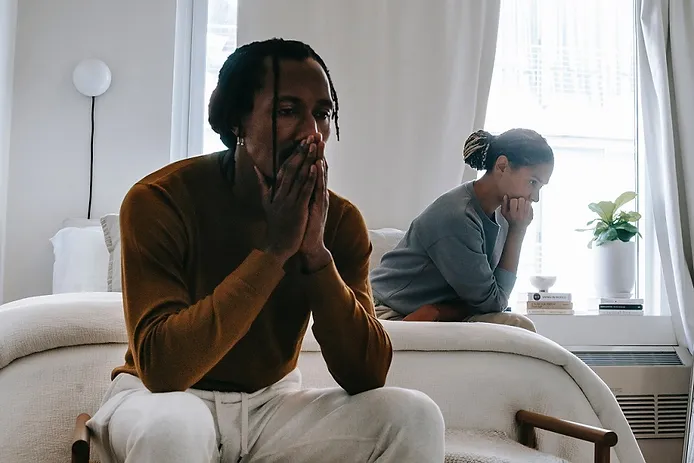Anxiety can impact many areas of your life, especially your closest relationships. When anxiety goes unmanaged, it can strain your connections with loved ones and also affect your own emotional well-being. Although you can’t simply stop feeling anxious overnight, there are effective ways to manage anxiety within your relationships so that both you and those around you better understand your experience—and how to support one another.
How Anxiety Shows Up in Relationships
Anxiety manifests differently for everyone, but in relationships, it often falls into three common behavioral categories: dependence, avoidance, and tension. Recognizing which of these patterns you’re experiencing can help you take steps toward healthier connections.
1. Dependence
Dependence can develop when a person with anxiety relies heavily on a specific individual for comfort and stability. Anxiety often triggers fears of change and being alone, so when you find someone who helps quiet those fears, it’s natural to lean on them. Being around safe, supportive people can ease racing thoughts, rumination, and negative self-talk.
However, leaning too much on another person can lead to codependency—an unhealthy dynamic where your sense of identity blurs, and being alone feels terrifying. This can put a lot of strain on both you and your partner.
If you notice yourself depending on your relationship for constant reassurance, try to develop coping strategies you can practice independently. While it’s perfectly healthy to seek support from your partner, balance is key. Too much reliance may leave your partner feeling overwhelmed or unappreciated.
If codependency feels like a struggle, working with a therapist can help you learn healthier ways to manage your anxiety and foster independence within your relationship.
2. Avoidance
At the opposite end of the spectrum, some people with anxiety may avoid their relationships or difficult conversations to escape negative feelings. Fear of judgment or misunderstanding can make opening up seem daunting.
Sometimes, anxious individuals struggle to distinguish between rational and irrational worries, so they avoid addressing issues altogether. But avoiding problems rarely makes them disappear. Instead, emotions tend to build up until they explode in unhealthy ways, damaging trust and communication.
Avoidance can leave your partner confused, hurt, or feeling rejected. They might even believe the distance is their fault, which adds further strain.
If avoidance feels familiar, seeking therapy can provide guidance on the underlying causes and teach you how to express your feelings constructively. Opening up—even gradually—can strengthen your relationship and reduce anxiety’s grip.
3. Tension
Feeling tense or on edge is common when living with anxiety, but this tension can affect relationships too. Irritability, frustration, or anger may surface during stressful times, making communication challenging.
When tension builds, it’s important to prioritize self-care—whether that means deep breathing, exercise, time alone, or activities that help you relax. You might also find value in practicing self-care together with your partner, which can foster connection and mutual understanding.
Moving Forward: Compassion and Commitment
It’s natural to feel guilty when you notice anxiety impacting your relationship. But it’s important to remember: anxiety is a mental health condition—not a personal failing. Rather than dwell on guilt or fall into repetitive unhealthy patterns, commit to recognizing your behaviors and actively working to change them.
Seeking support—whether through therapy, self-help tools, or open communication with your partner—can help you and your relationship heal. You don’t have to navigate anxiety alone, and healthier, more fulfilling relationships are possible with the right resources.


